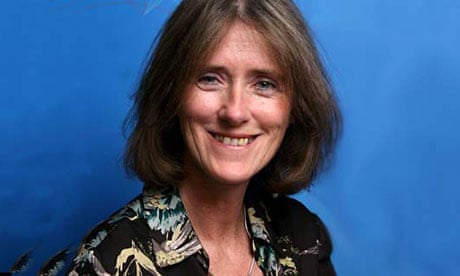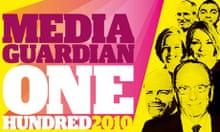A few days after this year's list started to run online last week, the editor of Red magazine tweeted: "Not many women so far. How does it compare to last?"
In pure percentage terms, there are more men named Julian in our top 10 under-40-year-olds than there are women in the MediaGuardian 100. Just 18% of this year's list of the most powerful or influential people in media are women, down from 21% last year and 20% the year before.
The numbers are even worse for ethnic minorities. Does 6% of the list – three times more than last year, admittedly – reflect our multi-racial, diverse country?
It may not reflect the country but, sadly, it does seem to echo cultural influence, economic clout and political power in the communications industry. The BBC does well, admittedly – last week's announcement of Gwyneth Williams as Radio 4 controller reflected its propensity to promote women, if not yet to the very top. But its success is not widely shared.
With a 50/50 gender split on a panel that included Channel 4's head of diversity, Oona King, it wasn't as if we weren't aware of the issue. When talking about why there were no women in our top 10, it was King herself who said we had to reflect reality and that was that women "had no influence in the media". So we had to admit defeat and accept that our snapshot of power and influence was overwhelmingly white and largely male.
Some may argue that none of this matters. The MediaGuardian list has been called a "completely unscientific, self-serving and whimsical exercise" – but if the media is about influence and holding power to account then lack of representation does matter.
On the plus side, our picture is actually more positive than many indicators of economic clout. The number of female executive directors in the top 100 public companies is 12.6% – falling to just 5% for all 600 companies – while women on average earn 16.4 per cent less than men for equivalent full-time work.
In the US, a controversial clause in the Dodd-Frank financial regulation bill, passed in the Senate last week, will require financial institutions with government contracts to abide by race and gender quotas. There will be a new Office of Minority and Women Inclusion (OMWI).
I can already hear some of the UK's best-known columnists – you know who they are – reaching for the smelling salts. They can relax; there's absolutely no chance of our regulation-cutting coalition government doing the same. But do we just accept the status quo?
One of our panellists suggested our list reflects the media's obsession with those who "shout the loudest". The rest get overlooked. Are women and non-white males simply getting more overlooked in an industry where "look-at-me" counts?




Comments (…)
Sign in or create your Guardian account to join the discussion